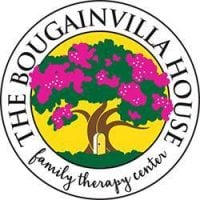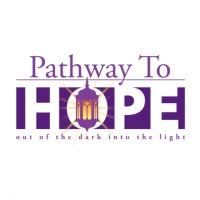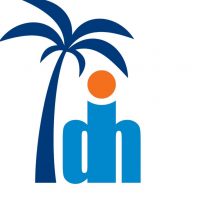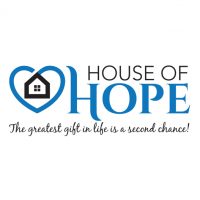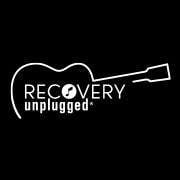Recovery Institute of South Florida
Drug Rehab Center in Fort Lauderdale, Florida
The Recovery Institute of South Florida provides a comprehensive range of JCAHO-accredited addiction treatment programs, including detoxification, residential care, intensive outpatient, and outpatient services, to help individuals struggling with alcoholism, opioid addiction or dual diagnosis in Fort Lauderdale with personalized care and compassionate support, while also accepting private health insurance.
Multiple patients have reported Recovery Institute of South Florida as permanently closed.
Research other rehabs in Fort Lauderdale, Florida, or get help finding an open facility.
About This Florida Facility
Recovery Institute of South Florida is an accredited drug treatment facility located in Fort Lauderdale, Florida. With their JCAHO certification, they have established themselves as a trusted provider of alcoholism, opioid addiction, dual diagnosis, and drug addiction treatment. This 44 bed facility offers a range of levels of care including detox, inpatient, intensive outpatient, outpatient, and residential programs. In addition, Recovery Institute of South Florida provides aftercare support to ensure long-term recovery for their patients. They accept private health insurance, making their services accessible to individuals seeking treatment for addiction and substance abuse.
Recovery Institute of South Florida offers a comprehensive array of services to address the needs of individuals suffering from alcoholism, opioid addiction, dual diagnosis, and drug addiction. Their facility provides detoxification services to help safely manage the withdrawal process. Their inpatient program offers a structured and supportive environment for individuals requiring 24-hour care. For those who require more flexibility, the intensive outpatient and outpatient programs provide a range of therapies and treatment options. Recovery Institute of South Florida also offers residential programs for individuals who need a longer-term treatment plan. Their commitment to aftercare support ensures that patients receive ongoing assistance and resources to sustain their recovery journey.
Genders
Ages
Modality
Additional
Accreditations

JCAHO
Conditions and Issues Treated
Opioid addiction treatment helps people addicted to opioids in Florida curb their drug use. The selection of a treatment setting depends on the severity of the addiction. Mild cases are usually treated in outpatient facilities; severe cases need hospitalization or treatment in a residential facility. Doctors use medicines along with counseling and behavioral therapies to treat the addiction. The treatment includes medication, counseling and therapy. It can also include group counseling, individual counseling and family counseling.
Conditions such as anxiety, depression, schizophrenia, bipolar disorder are part of mental illness. This may occur that opioid abuse and vice versa are induced by mental illness. Diagnosing a concurrent diagnosis or co-occurring condition at Recovery Institute of South Florida is essential to understand the addiction better.
Levels of Care Offered at Recovery Institute of South Florida
This center offers a variety of custom treatment tailored to individual recovery. Currently available are Aftercare Support, Detox, Drug Rehab, Dual-Diagnosis, Inpatient, Intensive Outpatient, Outpatient, Residential, with additional therapies available as listed below.
Detox is a drug rehab process that begins before the actual drug rehab treatment. It is used to remove any residual toxins left in your body (and brain) after using drugs, and it is used with the intent to help you or your loved one complete drug rehab.
If you are addicted to opiates like heroin, methadone, or prescription painkillers, you will detox with medication. This is because the withdrawal symptoms are often more intense and uncomfortable for an opiate addict than for someone who has abused or is dependent on other drugs, like cocaine.
Inpatient programs are intensive regimes that require individuals suffering from serious addictions to admit themselves into a controlled environment. Inpatient programs in Florida generally span over 28 days to six months. The first step in an inpatient program is medically assisted detox. Doctors and addiction specialists at Recovery Institute of South Florida monitor the individual’s vital signs as the drugs leave their system. Some inpatient rehab programs also provide counseling for family members to provide encouragement and emotional support. In inpatient programs, patients have access to 24-hour medical supervision.
To assist with alcohol or opioid abuse, or a co-occurring condition, Recovery Institute of South Florida offers an outpatient treatment program. For their rehabilitation and other services, the Florida patient will go to the treatment center, yet return home every night. After most of the program is completed, the level of mandatory participation reduces.
Residential treatment programs are those that offer housing and meals in addition to substance abuse treatment. Rehab facilities that offer residential treatment allow patients to focus solely on recovery, in an environment totally separate from their lives. Some rehab centers specialize in short-term residential treatment (a few days to a week or two), while others solely provide treatment on a long-term basis (several weeks to months). Some offer both, and tailor treatment to the patient’s individual requirements.
Aftercare comprises services that help recovering addicts readjust to normal day-to-day Florida activities. It can last a year or even longer. Services include individual and family counseling, medications to reduce cravings, and treatment of psychiatric and other medical conditions. Aftercare support begins once you have completed earlier stages of treatment.
Therapies & Programs
Therapy plays a major role in addiction recovery. It encourages patients to get to the root of their addiction and learn how to better handle the issues that led to using. Therapy can be conducted in group and one on one settings. In Recovery Institute of South Florida‘s individual therapy, the patient meets with the therapist in a one on one setting. This allows them to focus on the underlying issues of addiction and come up with solutions to prevent future abuse.
When the whole family is involved, healing can be far more successful. Family counseling involves genetic factors to the family of the addict. This offers the means to cope with addiction and its underlying emotional disorders for loved ones. It is a helpful method for addicts in helping to adjust to sober living.
Addiction commonly results in malnutrition, vitamin and mineral deficiencies. This can be reflected in weight loss, hair loss or hair changes, skin irregularities. Eating correctly to replace lost vitamins and minerals while balancing your diet can build confidence. Recovery Institute of South Florida will help you get back on track.
Nicotine Replacement Therapy (NRT) uses low-dose nicotine drugs to eliminate tobacco addiction from smokers. Without smoking, the treatment at Recovery Institute of South Florida in Fort Lauderdale, FL brings nicotine into the bloodstream to minimize dependence on the physical habit, while detoxing the body from the attachment. To alleviate withdrawal symptoms, it also helps abusers to adapt to lower doses over time.
Payment Options Accepted
For specific insurance or payment methods please contact us.
Is your insurance accepted?
Ask an expert, call (888) 674-0062
Additional Details
Specifics, location, and helpful extra information.
Fort Lauderdale, Florida 33316 Phone Number Meta DetailsUpdated November 25, 2023
Staff Verified
Patient Reviews
There are no reviews yet. Be the first one to write one.
Fort Lauderdale, Florida Addiction Information
Florida is one of the nation's epicenters for substance abuse and drug-related overdoses. In 2014, around 410,000 Florida residents were addicted to drugs and alcohol. Over the last 10 years, 12% of all deaths in the state were attributed to substance abuse. Treatment admissions for alcohol reached 24,329 patients in 2016, and 2.5% of Florida high school students admitted to using crack cocaine.
In 2017, there were 200 deaths due to drug overdoses in Broward County, including Fort Lauderdale. This was a significant increase from the 155 deaths that occurred in 2016. Approximately 21% of people aged 12 or older with an AUD also had a SUD. Drug addiction is a severe problem that can lead to crime, violence, and other social issues.
Treatment in Nearby Cities
- Miami Beach, FL (22.1 mi.)
- Lake City, FL (320.7 mi.)
- Panama City Beach, FL (445.4 mi.)
- Intercession City, FL (171.0 mi.)
- Apalachicola, FL (387.4 mi.)
Centers near Recovery Institute of South Florida
The facility name, logo and brand are the property and registered trademarks of Recovery Institute of South Florida, and are being used for identification and informational purposes only. Use of these names, logos and brands shall not imply endorsement. RehabNow.org is not affiliated with or sponsored by Recovery Institute of South Florida.





